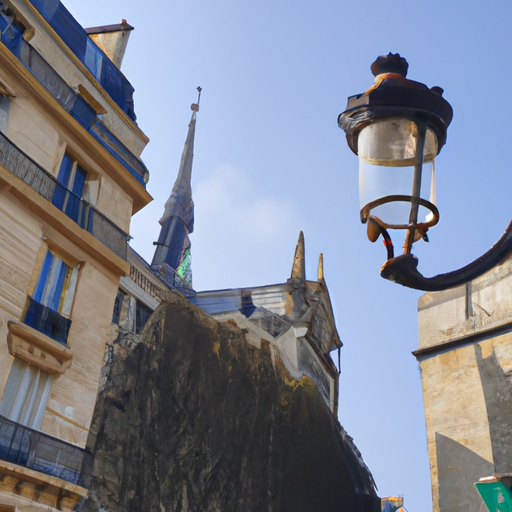Parisian means peace and unity between two persons. This meaning is often represented by the iconic Eiffel tower. It is a phrase that has been used a lot in Parisian literature and art, but it has slowly been adopted by people who live outside France as a message to peace and understanding. The phrase can be used to show mutual appreciation and understanding between people who have come together despite their differences. This meaning is used by friends, family, and lovers to show their appreciation and support one another.
Origin of the Parisian Meaning
The Parisian phrase has been around for many centuries. It first appeared in French literature in 17th century. This phrase is an extension to the “Gallic Peace”, which is meant to ensure stability and security in the region. This phrase is used to bring people together, to show appreciation and understanding, regardless of their religion or origin. The Eiffel tower is a symbol of Paris and has been associated with love and romance. It is a universal language that expresses love between two people. The phrase is a declaration of appreciation, and unity. This appreciation extends beyond romantic relationships. Friends and family can share the phrase to show appreciation and understanding.
How the Parisian Meaning is Used
The Eiffel tower is the most common reference to Parisian meaning. It is often used in literature or art. The term can also written or spoken in common languages. People often express their appreciation or understanding through written and spoken words. As tangible reminders of the symbolism of the phrase, gifts depicting the Eiffel tower such as prints or jewelry are very popular. The Parisian phrase is now widely known and appreciated outside of France. There are many items and gifts that include the phrase in English so that it can be more easily recognized and appreciated.
Significance of Parisian Meaning
Parisian meaning is much more than a phrase. It is a declaration of peace and unity between people that is often represented by the iconic Eiffel tower. This phrase is deeply rooted in Parisian culture, art, and has been accepted by people around the world. It is a universal language that expresses love and appreciation regardless of religion or nationality.
Frequently Asked Questions (FAQs).
Q1: What is the Parisian meaning?
A1. A1. It is often seen in Parisian literature and art, but it has slowly been adopted by people who live outside France as a message to peace and understanding.
Q2: When was the Parisian meaning first mentioned in literature?
A2. A2. The Parisian phrase has been around for many centuries. It first appeared in French literature in 17 century.
Q3: How does the Parisian Meaning typically sound?
A3. A3. It can also be written in common language. People often express their appreciation or understanding through written words.
Q4: Can the Parisian Meaning be used for more than romantic relationships?
A4. Yes, this phrase is shared among friends and family to show appreciation and understanding.
Q5: What is the Gallic Peace, and how can it be achieved?
A5. The Gallic Peace is an agreement among various European countries that exists to ensure stability and security within the region.
Q6: What other items include the Parisian Meaning
A6. Many items and gifts now include the French phrase in English. This allows it to be more easily recognized and appreciated. These items include jewelry, prints and cards, as well as other novelty items.
Q7: Is the Parisian meaning still used as a universal language for love?
A7. Yes, the Parisian meaning can still be used to express appreciation between two people. It is now a universal language that expresses love and appreciation regardless of religion or nationality.
Q8: Is the Parisian meaning only in literature or art?
A8. A8.
Q9: What’s the significance of the Parisian Meaning
A9. A9. This phrase is a staple of Parisian culture, art, and life and has been adopted by people around the world.
Q10: Does the Parisian Signify More Than a Statement of Peace and Unity?
A10. The phrase is universally understood and used to express love and appreciation regardless of nationality or religion. It was used to bring people together and recognize their mutual appreciation and understanding of each other, regardless their differences.

Leave a Reply